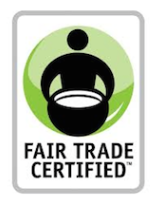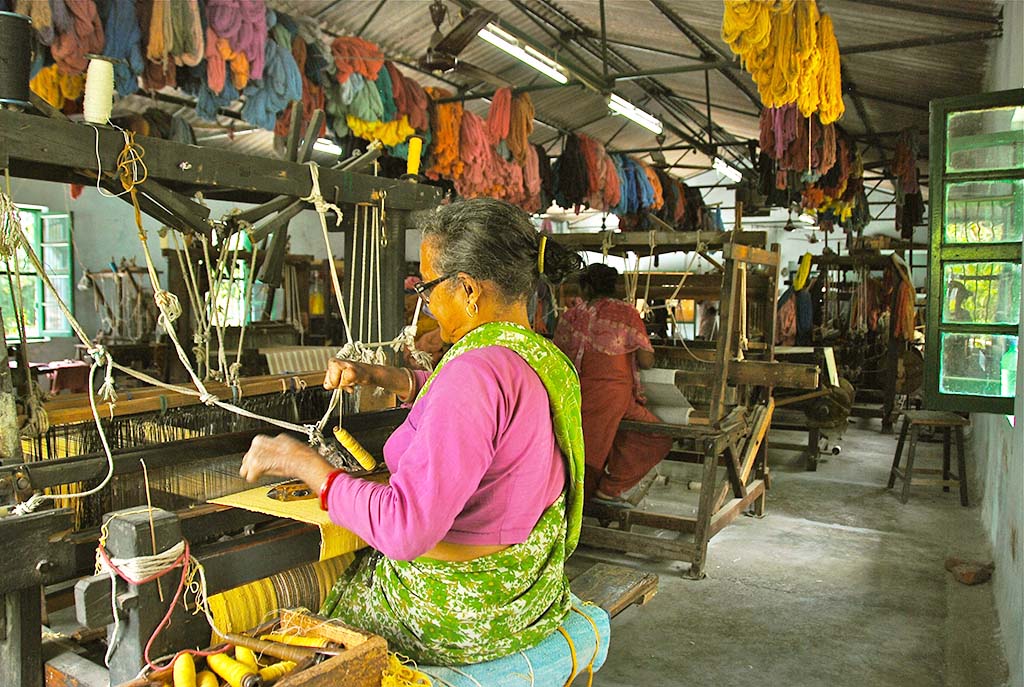
We get it. As a college student your budget is tight & your time is stretched thin between class assignments, several side jobs, & attempting to have a social life. Who has extra cash for buying Fair Trade & who has the time to research where to even start to find Ethical Shopping options?
Well you’re in luck because today we’re doing the work for you!
So, let’s start at the beginning:
What does is mean to shop ethically?
There’s a bit of a difference between making socially conscious purchases & purchasing something that is specifically Fair Trade.
Socially conscious purchases, or shopping ethically, is the broader category of what you choose to purchase while a Fair Trade purchase is a more specific way of shopping ethically. When an item is labeled Fair Trade, it means that the producers in developing countries are adhering to a specific set of agreed upon ethical principles of conduct to protect the rights of the workers.
Photo via JOYN
The main tenants of Fair Trade are:
- Fair, living wages to producers to create opportunities for economically & socially marginalized men & women in developing countries
- Safe & empowering work conditions
- Protect the rights & safety of children
- Respect for culture & the environment
There are several organizations such as the Fair Trade Federation & Fair Trade USA that offer a Certification for companies who are large enough & can afford the certification. Many smaller organizations, while not certified, still abide by the principles of fair trade.
Why is shopping ethically important?
As technology continues to remove barriers of access around the world, we are learning more & more how connected we are to others. In this new age of information we are confronted with the effects of our everyday purchases. While this can be a tough thing to internalize when we hear about the working conditions of those making our clothes, it also means that we have the power to make changes to a world where people are valued for their contributions.
As consumers, we have the opportunity to request that businesses be transparent in their supply chains or we can take our purchasing power to a business that will. This shift in the industry can mean that the men & women working in sweatshop or in other exploited labor conditions who are currently in powerless situations can be empowered to begin supporting themselves, their families & their communities.
Easy & Affordable ways for you to get involved:
Making socially conscious purchases encompasses Fair Trade items as well as many other “do no harm” type purchases. Here are a few ideas of how you can get involved in ethical shopping and the ethical fashion movement that just may fit into your limited college student budget:
1.) Buy Local
Not only do many independently owned shops carry ethical & Fair Trade brands, but you can feel good about keeping money in your local economy.
2.) Buy Secondhand
You can find some killer one-of-a-kind items at thrift stores & yard sales as well as online for common brands at places like ThredUp. Not only are you not putting money into the fast fashion industry, but you’re also helping to make sure a product gets the most use as possible & out of landfills.
3.) Buy Fair Trade Certified
We talked in the beginning of the blog about this certification, but it extends beyond fashion. Next time you buy coffee or chocolate take a look for a Fair Trade Label. While the price is typically higher, the product is typically much better tasting too!

4.) Research
Check out the “About Us” section on websites to see what a company values before you shop. Typically if a company don't mention where their items are from, there's a good change they don't want you to know. Websites like http://www.goodguide.com & http://www.ethicalconsumer.org are great tools to give you information on companies as well as suggest other ethical companies to check out.
5.) Shop at Ethical Boutiques
Some boutiques exist that have already done the hard work & only sell ethically made items (like us here at Purse & Clutch!) While the price can be higher than something you may find at Target, they’re usually quite a bit less expensive than a handmade designer item - and you can feel good knowing that your helping to support fair wages for individuals in developing countries.
6.) Refrain
Unfortunately, it’s not always easy to find an item that you love, can afford, & feel good about the way it was made. Try simply refraining from making the purchase. Resolve to not shop at companies or shops that you know are absolutely not using ethical practices.
7.) Be Vocal
Tell your friends! Organize a group or a talk on campus to bring awareness to the issue exploited workers in developing countries. The more we discuss & act out our values, the more likely other businesses will sit up & take notice, making ethical sourcing common practice in the fashion industry.
--
We’d love to hear any other suggestions you have on way that you can get involved in Ethical Shopping as college students or ways that you’ve already gotten involved on your campuses! Please leave us a note in the comment section below:
--
A big thanks to one of our current Apprentices, Kayla Mcmullen, for the inspiration & research for this article.

